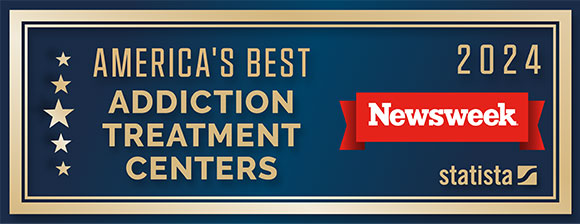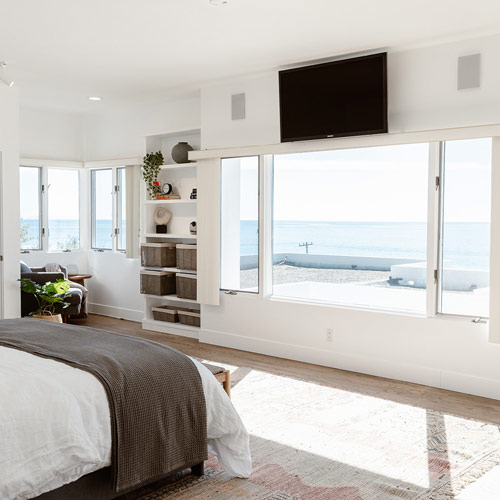
The Oro House Recovery Centers alcohol addiction treatment programs in Malibu and Los Angeles, California offer a successful, evidence-based approach for lasting sobriety.
Alcohol is one the most commonly abused substances in the United States and around the world. Figures provided by the National Institute on Alcohol Abuse and Alcoholism (NIAAA) show that 85.6% of the American population has indulged in alcohol consumption, with 14.1 million people in this demographic developing an Alcohol Use Disorder.
Whether it’s binge drinking on a single occasion or habitual drinking over a long period of time, excessive drinking poses grave risks, including chronic disease or even death. But the good news is that there are proven treatment therapies that can help people overcome problem drinking.
The best alcohol addiction treatment centers like Oro House Recovery pave the way for improved well-being and a lifetime of sobriety. No matter how powerless you feel or how long you’ve struggled with a dependence to alcohol, there’s always hope for recovery. You only need to make the life-changing decision of seeking help and committing to the process of recovery.
Named Best Luxury Alcohol Treatment Center

How Can Oro House Recovery Help With Alcohol Addiction?
Our highly-qualified and compassionate team of healthcare professionals at Oro House understand that the effects of alcohol are far-reaching—with serious physical, mental, and social consequences. This is why our evidence-based alcohol treatment process addresses the emotional, psychological, and physical impact alcoholism has on each individual.
Our alcohol treatment program is comprehensive—including medically-assisted and monitored alcohol detox services, residential inpatient treatment, outpatient treatment, and even aftercare services to improve outcomes. All of these steps are based on individualized assessments and personalized treatment plans that are unique to you or your loved one.
As one of the leading alcohol treatment facilities in California, our goal is to uncover the conditions and circumstances that led to the Alcohol Use Disorder—and effectively address each one of them. But our approach is not based on coercion or forced abstinence like conventional treatment programs. Instead, we created a unique compassionate care model that is nurturing, non-judgmental, and strives to provide a sense of belonging to promote healing and long-lasting recovery.

The bravest thing anyone can ever do is reach out and ask for help.
We know how difficult this can be. We want this part of your journey to be as painless as possible.
What are the Signs and Symptoms of Alcohol Dependence?
The first step in treating an Alcohol Use Disorder is recognizing the signs and symptoms, and admitting you have a problem.
In the U.S., the criteria for diagnosing someone with an Alcohol Use Disorder is laid out in the Diagnostic and Statistical Manual of Mental Disorders (DSM-V).
Here are some of the signs and symptoms that indicate it may be time to seek professional care and support:
(Note: A person should meet at least 3 of the following diagnostic criteria within the last 12 months)
- Denying that your drinking habits are problematic
- Binge drinking frequently, which increases the risk of alcohol poisoning or overdose
- Irritability and frequent mood changes due to drinking
- Drinking in secret or alone, which includes hiding your drinking behavior from others
- Unhealthy or dangerous behavior to support drinking habits
- Neglecting responsibilities at home, school, or work
- Developing a tolerance—which is characterized by an increased intake of alcohol needed to achieve the same level of intoxication
- Relying on alcohol to function “normally”
- Uncomfortable to severe withdrawal symptoms if the amount consumed is reduced, or when you stop drinking altogether
- Turning to alcohol as a coping mechanism, especially when there is an underlying mental health condition
- Spending significant resources of time and money to find, use, and recover from alcohol use
- Foregoing activities like favorite hobbies or sports that were previously enjoyable without alcohol
- Using alcohol in potentially dangerous situations such as driving while intoxicated
Possible Risk Factors and Causes of Alcohol Addiction
How does alcoholism or Alcohol Use Disorder develop? There are several factors that come into play to cause alcohol dependence to develop. Over time, the regular consumption of alcohol may disrupt the chemical makeup of the brain—making the body crave more and more alcohol in order to experience pleasure or gratification.
Here are some of the risk factors that are linked to problematic drinking:
Mental Health Factors
Self-medication is a practice in which an individual with an underlying mental health condition such as depression or anxiety turns to alcohol as a way to relieve their symptoms. Over time, this may lead to a dual diagnosis disorder, causing a person to develop a substance use disorder in addition to the existing mental health disorder.
Genetic Predispositions
To quote the NIAAA, “Research shows that genes are responsible for about half of the risk for an Alcohol Use Disorder.” There are multiple genes that contribute to an increased risk of developing an addiction to alcohol, which might explain why alcoholism seems to run in families.
Stress or Trauma in the Past
People battling stress or those struggling with a previous traumatic experience may turn to alcohol as a coping mechanism. While short-term consumption may lead to relaxation and positive feelings, alcohol is not a solution, and its long-term effects may work against you, thereby increasing the risk of dependence.
Social Factors
From the media portraying alcohol consumption as a glamorous or cool activity to peer drinking, a variety of social factors often increase the risk of engaging in excessive drinking.
Age of First Drink
According to scientific studies, people who started drinking before the age of 15 have a higher risk of alcohol dependence later in life.
Alcohol Addiction is Treatable and Oro House Recovery Can Help
It can’t be stressed enough that you don’t have to struggle alone. Alcohol addiction is treatable as long as you’re willing and ready to fight for your sobriety. Specialized treatment centers such as Oro House Recovery can help you or your loved one live a fulfilling life, free from the grip of alcoholism.
Oro House Recovery Centers in Los Angeles and Malibu offers evidence-based alcohol addiction programs that are successful and unique to each client. The programs are guided by our unique compassionate care model and a highly experienced, non-judgmental, and knowledgeable staff of addiction therapists.
We provide a comfortable and safe luxury environment—that’s characterized by beautiful surroundings, top-notch care, wonderful amenities, and a focus on client privacy. Our environment is an ideal setting to address a client’s individual challenges and to achieve sustainable recovery.
Alcohol addiction treatment at Oro House is delivered as part of a comprehensive and individualized treatment plan as shown below.
Detox Facilities
Alcohol detox is often the first step in the alcohol addiction treatment process—and for good reason. After years of drinking, the body develops a dependence to alcohol, and any attempt to curb or stop the habit may lead to severe withdrawal symptoms, including shaking, sweating, restlessness, elevated heart rate, gastrointestinal issues, vomiting, headaches, high blood pressure, confusion, or even seizures.
Unless well-managed by the supervision of trained specialists, the withdrawal symptoms can be very uncomfortable or even lethal. At Oro House, we combine our empathy, expertise, luxury facilities, and compassionate staff to offer comfortable, medically-supervised, and safe in-house alcohol detox services.
Rehab Treatment Methods
After the body is free of alcohol following detoxification, the next step is our residential alcohol treatment program. This involves a series of individualized and evidence-based inpatient therapies to help our clients overcome alcohol triggers and cravings. We teach our clients coping skills in a supportive and holistic setting.
Some of the alcohol addiction treatment modalities offered at Oro House Recovery include:
- Cognitive Behavioral Therapy (CBT)
- Motivational Therapy
- Dialectical Behavioral Therapy (DBT)
- Meditation
- Neurofeedback
- Existential Psychotherapy
- Rational Emotional Behavioral Therapy (REBT)
- Relapse Prevention Therapy (RPT)
- Psychodynamic Therapy
- Person-Centered Therapy
- Somatic Experiencing
- Eye Movement Desensitization and Reprocessing (EMDR)
- Acceptance and Commitment Therapy (ACT)
It’s important to note that there is no one-size-fits-all approach when it comes to alcohol addiction treatment. Our program and comprehensive mix of therapies and modalities are mindfully tailored to each client’s unique needs and addiction history.
We have programs designed for high-functioning Professionals who value discreet and luxury settings, as well as a Young Adult Program that’s suited to the unique needs of young people transitioning into adulthood.
Maintenance
After rehabilitation, we help our clients gradually re-acclimate to everyday life by providing ongoing support in the form of aftercare services and an alumni program. We offer engagement and encouragement to help each of our clients maintain sobriety for the long-term and a return to a happy and fulfilling life.
Call Oro House Recovery Centers toll-free today for more information about our alcohol addiction treatment programs in California.




